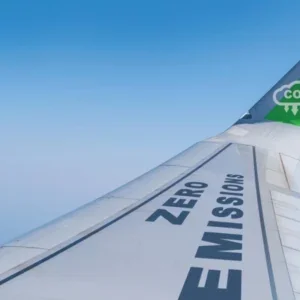Facing multiple risks – from terrorism and smuggling to organised crime and travelling sex offenders – and operating in an increasingly busy and complex environment of international travel, the agencies responsible for controlling national borders have set the bar high. Collaboration between airports, airlines, domestic law enforcement, customs, immigration and many other agencies is therefore crucial in setting and maintaining the standard.
INTERPOL plays a central role coordinating these efforts. It provides a mechanism through which police forces around the world can work together across its 190 member countries using high-tech infrastructure for technical and operational support.
“There is always a margin of error,” says Mick O’Connell, the world’s largest international police organisation’s director of operational support and analysis. “Having 190 countries as part of INTERPOL means we know there will be imperfections. Different development cycles, investment programmes, cultural factors and many other things mean there must be some tolerance. Nevertheless, in 30 years we have moved to a better place. Also, there are more than 70 million stolen identities available at the moment. That risk could be minimised through established travel routines, but some countries don’t have fully integrated processes, and you have to add to that instances of people crossing borders clandestinely.”
The Integrated Border Management Task Force (IBMTF) is the central point of contact and coordination for international border security activities at INTERPOL. It supports law enforcement officers at the front line of border security by providing access to the organisation’s tools and services, delivering capacity building and training courses, and coordinating operational activities. One of its key functions is to provide a link to operational databases for first-line checks.
These include a stolen and lost travel document database (SLTD) that holds information on stolen, lost or revoked passports; nominal data, which covers personal data and criminal histories of persons that are the subject of information requests; stolen motor vehicles, vessels, spare parts and engines; forensic databases; fingerprints and DNA profiles; IBIN ballistic data; and notices, which provide a colour-coded system of alerts.
“The integration of security architecture is improving, says O’Connell. “Our baseline of risk is also changing through access to databases. For instance, the SLTD database was driven after 9/11. We have to think carefully about effective resource allocation and management when it comes to prioritising risks. Primary threats, such as terrorism, or the carriage of illegal goods, are very important. Over the past three years, the foreign terrorist fighter phenomenon has increased a lot. We can’t take a simplistic approach, so INTERPOL provides a sensible, effective and secure environment for the passing of sensitive information in a discreet way.”
“The in-country border control environment often has many agencies involved – immigration, police, military, counter-terrorism and international agencies – all of which are calibrated to different levels of information sharing. There are many complexities in developed countries as well as developing countries. We have to break down the silos. We are approaching a time when there will be two billion passenger movements a year, so we have to develop systems that are optimal so as not to disrupt that traffic,” he adds.
For the last three years, one of INTERPOL’s efforts to break down silos has been to pilot the innovative I-Checkit programme, which could have a dramatic impact on border control processes in airports.
The ins and outs of I-Checkit
I-Checkit enables partners in the travel, tourism and banking industries to send customer passport data to INTERPOL for screening against the SLTD database. It can assist countries that do not have fully integrated border control systems to make better use of INTERPOL information. The aim is to help detect criminal activity and, if successful, the technology could be adopted as one of INTERPOL’s core operations services.
The SLTD was created in 2002 in response to the terrorist attacks of 9/11, and helps member countries to secure their borders and detect people travelling using fraudulent documents. It contains details of lost and stolen passports submitted by INTERPOL National Central Bureaus (NCBs) and law enforcement agencies through the organisation’s I-24/7 secure global police communication system. Agencies including border control and immigration can check the validity of travel documents against the database in a matter of seconds.
At launch, SLTD contained only a few thousand records from ten countries, but it has since grown rapidly. Now, 174 countries contribute information to the database, which contains just under 70 million records. In the first nine months of 2016, the database was searched nearly 1.25 million times, generating more than 115,000 positive results that indicated fraudulent documents were being used.
“I-Checkit works with countries to take data – including information from law enforcement agencies – to make a just assessment of risks including the right to travel,” remarks O’Connell. “Law enforcement and airlines were frustrated that the national environment often could not keep pace with the change in demand. They must be able to share data with us and get a law enforcement response, so there is a one-to-one communication and a de-risking for airlines. The system also has value for banking, car rental, hotels, cruise lines and other entities.”
“INTERPOL had to convince law enforcement about the necessity of sharing data in a precise and lawful way with the private sector, and now we have to ensure that all parties get a return on that data. I-Checkit trials started with AirAsia in 2014 and now more airlines are getting on board. Some cruise operators are also using it to mitigate risks.”
The IBMTF will play a key role in the wider use of the system. It harmonises policing capabilities within INTERPOL and communicates that to border control agencies, for which it provides training in the use of data.
“Engagement comes in two areas,” continues O’Connell. “First, at the political level, INTERPOL is dealing with the nuances in changes in policy and among those responsible for investment, and are working towards consolidating existing systems. At the cultural level, it is about making agencies responsible for border security through effectively working together for mutual advantage. The INTERPOL system is a central pod for communication; individual border control operators must be shown what to do with the data, which is why education programmes are so important.”
Building consensus around border control
The aviation industry is just one part of the broad and complex matrix of international travel, but O’Connell recognises it as central to the improvement of border control mechanisms driven by the sharing of data.
“INTERPOL encourages airports to be a critical friend to law enforcement agencies and to make them aware of the operational environment. It promotes awareness that at a local level they can prioritise the best use of intelligence to improve risk assessment without the disruption that could cause negative customer feedback about security processes. Airports should encourage the use of security agencies to optimise their processes,” he says. “With I-Checkit, we are coming to a tipping point. There is growing recognition in the industry that it is a viable alternative to the problems that exist with national systems architecture. It is very important in places where that national architecture is not seamless. With the ongoing trend of globalisation, identity management is of critical importance and this applies not only to airlines and airports but also to banking, hotels and many more sectors. So, I-Checkit has multiple roles to play. It shows that law enforcement can work with the private sector in a confident and secure way in the age of big data.”
Coordination between national and international law enforcement agencies is improving, thanks to the access to databases that INTERPOL provides. At the same time, systems such as I-Checkit are bridging the gap between the public and private sectors to potentially make a step-change in the efficiency and efficacy of border control processes. O’Connell stresses, however, that there is one more stakeholder that needs to be conscious of the role it plays; namely the travelling public.
“INTERPOL is talking with policymakers and law enforcement agencies, and is promoting the better use of existing systems. It does not always need a new shiny thing to improve the use of data. Then there is a push to remind the travelling public that a passport is owned by the state that issued it. If it is lost, the state will want to find it. If you report it, INTERPOL will see it as a lost identity, so if you find it, do not use it, or your journey will be disrupted. Tell the authorities,” he says.
“The automation of identification processes is eliminating those travellers who are not a risk. With the right systems in place, flights will not be delayed and there could be a reduction in the amount of travel time that is lost. INTERPOL is taking the speed bumps out of international travel.”






